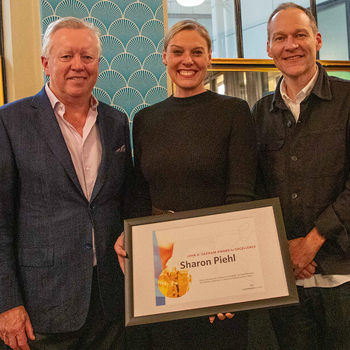Watershed Week Ahead for SA Press
The South African press, which has been under attack from the ruling ANC in recent times for allegedly being a law unto itself, is set for a watershed moment next week.
The Press Freedom Commission (PFC) is due to release the results of its much-anticipated probe of the country’s system of press self-regulation on Wednesday (April 25). It is most likely to herald a major change in the way transgressions by the press against the public are resolved.
The PFC was initiated by Print Media South Africa, a representative body of newspaper and magazine owners, and the South African National Editors’ Forum. It was launched in July last year.
This followed concerted, vicious criticism by the ruling ANC that the current system, whereby an industry-appointed ombudsman adjudicates complaints, is buddy-buddy.
The Press Ombudsman was severally criticised as toothless because he cannot fine journalists and newspapers for getting things wrong, to the detriment of the public.
The ANC prefers a punitive Media Appeals Tribunal that would impose harsh penalties on journalists and their employers, including even jailing them.
The press and other advocates of freedom of speech have slammed the proposed tribunal as part of a plan by the government to muzzle the media because of their relentless exposes of government corruption.
Many ANC politicians, some of whom have been caught with the proverbial hand in the proverbial cookie jar, have questioned the media’s constitutionally-enshrined watchdog role. Their argument is that the press, being unelected, can’t hold them accountable.
Phil Mthimkhulu, a commissioner and spokesman for the PFC, says their mandate was to “devise a gold standard regulatory framework for print media that would be in line with the SA Constitution.”
The commission did desktop research, undertook international visits and called for public submissions. Such was the enthusiasm that the calls for submissions elicited 230 responses.
The commission also heard oral submissions in three of the country’s major centres – Johannesburg, Durban and Cape Town.
“The following areas emerged as areas of concern from a number of stakeholders: independence of the Press Council of South Africa (PCSA) and the ombudsman’s office, the waiver that is signed by complainants before their case is taken up, protection of children, the independence of the appeals mechanism, the representation of press members in the PCSA and adjudication, the absence of punitive measures throughout the PCSA process, the regulation of the digital publishing space, transformation and whether self-regulation as a system was the best for SA,” says Mthimkhulu.
Given the progressive makeup of the commission – it is made up of such respected people as Anglican Church bishop Thabo Makgoba and is chaired by retired Chief Justice Pius Langa – my educated guess is that it will seek to strike a balance between promoting press freedom and the need to protect the public against unfair treatment at the hands of the few newsroom cowboys with poisoned pens.
The press can expect to be slapped with fines in future for recklessness in addition to allocating space for corrections and apologies, as required by the current South African Press Code.
The press might not like it but, they’ll have no option but to roll with the punches. This and the expected increased independence of the office of the Press Ombudsman will go a long way towards obviating the need for the ANC to continue with its plans for a drastically punitive media tribunal that would be inimical to media freedom.
By Thabo Leshilo, FH Director
*Thabo Leshilo is former head of Sanef’s media freedom committee. He sat on the PMSA and Sanef committee that established the Press Freedom Commission.
Find Out More
-
Digital Insights Bulletin - October 2024
October 31, 2024
-
Sharon Piehl Wins 32nd Annual John D. Graham Award for Excellence
October 25, 2024
-
Digital Insights Bulletin - September 2024
September 30, 2024


